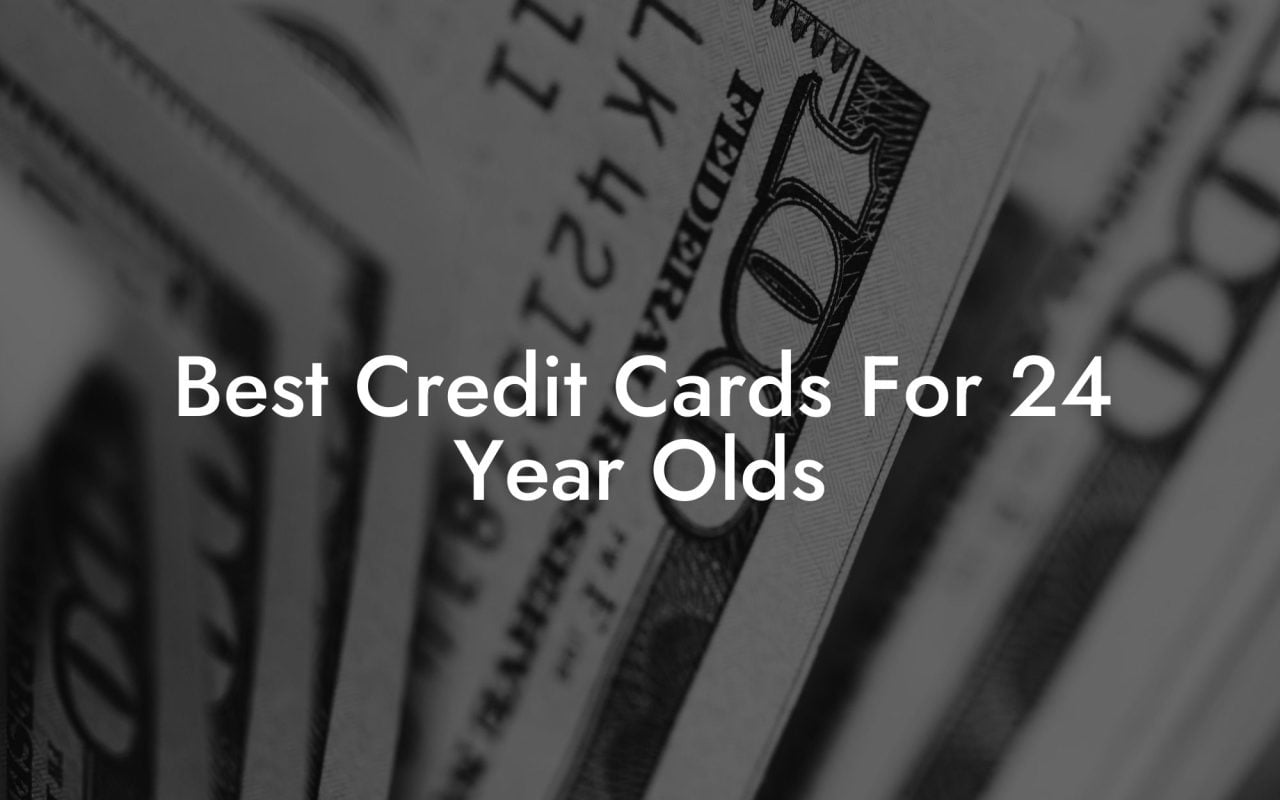Ever wonder what happens to your credit cards when you file for bankruptcy? Picture this: you wake up one morning, coffee in hand, scrolling through your notifications, and bam—a wave of financial panic hits. In a flash, your once trusty plastic companions seem to transform into bitter reminders of past spending sprees and impulsive online shopping binges. But don’t stress just yet—this isn’t the end of your financial story. In this ultimate guide, we’re about to take you on a wild ride through the maze of bankruptcy, credit repair, and how your credit cards are affected when you decide to hit the reset button on your finances. Buckle up, because we’re diving deep into issues that affect millennials and Gen Z alike, mixing hard facts with a dash of humor and plenty of relatable advice.
What Happens To Your Credit Cards When You File For Bankruptcy Table of Contents
Understanding Bankruptcy Basics: Breaking Down the Jargon
The Immediate Impact: How Bankruptcy Shakes Up Your Credit Cards
Credit Card Debt: Discharge, Repayment, and the Fine Print
Rebuilding Your Financial Life: Getting Back on Track After Bankruptcy
Common Misconceptions About Bankruptcy and Credit Cards
Navigating the Bankruptcy Process: A Step-by-Step Guide
Rebuilding Credit Post-Bankruptcy: Tips and Tricks for a Fresh Start
Real-Life Stories: How Millennials and Gen Z Bounced Back
Resources and Community Support: Your Next Steps
Your Journey to Empowered, Financial Health
FAQs on Credit Cards and Bankruptcy: Your Burning Questions Answered
Your Next Steps: Embrace the Opportunity for Financial Rebirth
Understanding Bankruptcy Basics: Breaking Down the Jargon
Let’s start at square one: What exactly is bankruptcy, and why would anyone, especially someone young and full of dreams, choose this path? Bankruptcy is essentially a legal process that gives you a way to either discharge (wipe out) some of your debts or set up a repayment plan when your debts have grown way too heavy to juggle. It’s not a one-size-fits-all solution—there are different types, most notably Chapter 7 and Chapter 13. Think of Chapter 7 as the financial equivalent of a deep clean, where most unsecured debts (like credit cards) vanish into thin air, while Chapter 13 is more like a strict budget makeover, allowing you to keep your assets but making you pay back a portion over time.
In the context of credit cards, bankruptcy doesn’t magically erase your history or erase all responsibility. Instead, it restructures your obligations, and the impact varies depending on which type of bankruptcy you file. The idea is to give you breathing room, a chance to start fresh, and ultimately rebuild your credit from scratch—all while learning valuable lessons about managing money.
While the thought of bankruptcy might seem as daunting as your student loan balance, it’s important to remember that millions have taken this step—and emerged on the other side with a clearer vision for their financial future. So, if you’re in a rut and your credit card bills have you feeling like you just got body-slammed by life, read on. We’re breaking it down, step by step, in a way that’s as no-nonsense as your favorite meme.
The Immediate Impact: How Bankruptcy Shakes Up Your Credit Cards
When you file for bankruptcy, the first thing you may notice is that your credit cards are no longer your freewheeling, tap-to-pay best friends. Instead, they morph into symbols of a more challenging chapter in your financial life. Here’s what typically goes down:
- Automatic Account Freezes: As soon as you file, your credit card accounts might be frozen, meaning you can’t make new charges. This is essentially a protective barrier for both you and the creditors, ensuring no additional debt accumulates during the bankruptcy process.
- Cancellation of Some Cards: In many cases, especially under Chapter 7, credit card companies may cancel your accounts. They’re not doing it out of spite—more like a precautionary measure to minimize risk while you sort out your finances.
- Debt Discharge or Repayment: Depending on your bankruptcy chapter, your credit card debt might be either discharged (eliminated entirely) or restructured into a manageable repayment plan under Chapter 13. This means that while the debt you owe might shrink dramatically, its presence on your credit report can linger like that embarrassing high school photo.
It can feel like your credit cards are being put into a timeout, and trust us—they are. The freezing and cancellation aren’t punishments; they’re safety nets, giving you the chance to reset your financial habits and rebuild without constantly looking over your shoulder.
The initial shock might be overwhelming, like finding out your favorite band broke up right when you were about to see them live. However, understanding why these steps are taken can empower you to navigate the bankruptcy process with a clearer head and a plan for your comeback.
Credit Card Debt: Discharge, Repayment, and the Fine Print
One of the burning questions on every financially stressed mind is: “Will my credit card debt disappear if I file for bankruptcy?” The answer, as with most things in life, is a bit complicated but absolutely worth understanding. When you file for bankruptcy, not all debts are treated equally.
Dischargeable vs. Nondischargeable: Bankruptcy laws categorize debts into two main buckets. Most credit card debts are classified as unsecured debts and, therefore, are dischargeable under Chapter 7. This means that, in many cases, you can have these debts wiped clean. However, if you’ve accrued debt through fraud, misuse, or reckless spending, those accounts might not be eligible for discharge. Similarly, certain fees and penalties might stick around.
Chapter 7 vs. Chapter 13: In a Chapter 7 filing, unsecured debts like most credit card balances can be discharged, giving you a fresh slate. But if you file under Chapter 13, your debt isn’t erased overnight; instead, you enter a court-approved repayment plan that typically lasts three to five years. During this time, your debts are reorganized into a manageable format, and you make regular payments to a trustee who distributes the funds to your creditors.
It’s essential to dig into the fine print of any bankruptcy proceeding. While the thought of erasing decades of credit card misadventures might sound like a miracle cure, the reality is that bankruptcy will remain on your credit report for up to 10 years. That record might come up during a background check for that dream apartment or your next job interview. But remember, even a bankruptcy-stained report is just one chapter in your financial story—not the whole book.
For anyone who’s ever felt weighed down by the burden of past credit card overspending, understanding these nuances is empowering. Yes, bankruptcy comes with its own set of risks, but it also offers an opportunity—a chance to reset, learn, and eventually rise like a financially savvy phoenix.
Credit Reports & Scores: The Aftermath of Bankruptcy on Your Credit History
Let’s talk about the elephant in the room: your credit score. Filing for bankruptcy is almost guaranteed to send your credit score on a nosedive. But before you panic and start obsessively checking your credit report like it’s a Bitcoin price chart, here are some key things to keep in mind:
- Immediate Impact: Once you file, your credit report will show the bankruptcy filing, and your score will reflect that history. Expect a significant drop—often by 100 points or more. This might affect your ability to get a new credit card or even a car loan for a while.
- Long-Term Effects: Bankruptcy stays on your credit report for up to 10 years, which means lenders might see it when you apply for new credit. However, the impact diminishes over time if you practice responsible financial habits.
- Rebuilding Credit: The good news? Filing for bankruptcy doesn’t mean your financial life is over. Many folks have successfully rebuilt their credit scores through careful budgeting, diligent repayment habits, and eventually qualifying for secured credit cards that help demonstrate your renewed creditworthiness.
Think of your credit score like your favorite pair of sneakers: a little worn out after a rough patch, but with proper care and time, it can still look and feel as good as new. The journey toward a healthier credit score post-bankruptcy may be long and winding, but every step you take—from paying bills on time to keeping your spending in check—brings you closer to financial recovery.
It’s all about perspective. Instead of seeing bankruptcy as a financial scar, view it as a badge earned from surviving a storm. And remember, your story isn’t defined by one setback—it’s defined by your resilience and commitment to building a better tomorrow.
Rebuilding Your Financial Life: Getting Back on Track After Bankruptcy
If your bank account is feeling as empty as a TikTok trend, know that bankruptcy is not the end of your financial growth—it’s the beginning of a new, interesting chapter. The post-bankruptcy phase is all about rebuilding, learning, and strategically planning your comeback.
Establishing a Budget: The first step in this transformation is to create a realistic monthly budget. This not only includes paying essential bills and making regular contributions to that fledgling emergency fund, but also setting aside a small amount for fun. Yes, seriously! Allowing yourself a budget-friendly Netflix binge or a post-bankruptcy celebratory coffee can keep morale high.
Secured Credit Cards: Once your bankruptcy process is complete, using secured credit cards wisely is a top strategy for rebuilding credit. A secured credit card is like getting a loan from your future self—you deposit money upfront, and then you make purchases to prove you can be trusted. Over time, these cards pave the way to traditional, unsecured credit options.
Timely Payments: Payment history is a major factor in your credit score. Make sure that once you start re-establishing credit, every bill—from utilities to subscription services—is paid on time. Setting up automatic payments can be a game changer here.
Financial Education: This is your moment to become financially literate. Learn about interest rates, credit utilization, and investment basics. There are plenty of online resources tailored to millennials and Gen Z, from YouTube tutorials to interactive apps that gamify your credit-building journey.
The post-bankruptcy period is much like rehabilitating after a major injury—the recovery takes time, patience, and a lot of small, consistent actions. Every bill paid on time, every budget adhered to, and every smart credit decision builds momentum toward a brighter, more financially stable future.
Common Misconceptions About Bankruptcy and Credit Cards
There are plenty of myths swirling around about bankruptcy and its effects on your credit cards. Let’s debunk a few of these so you can approach your financial future with unshakeable confidence:
Myth #1: Bankruptcy Means You’re a Bad Person
Absolutely not. Bankruptcy is a legal tool designed to help people regain control when their debts become unmanageable. It’s not a moral failing; it’s often a strategic decision during challenging times.
Myth #2: All Your Debt Disappears Instantly
While certain debts can be discharged, not every debt vanishes into thin air. Certain obligations—like student loans (in most cases), tax debts, and child support—often stick around even after bankruptcy.
Myth #3: Bankruptcy Ruins Your Financial Future Forever
Think again. Though bankruptcy remains on your credit report for a decade, it doesn’t lock you into a life of financial mediocrity. With smart strategies, budgeting, and a bit of time, your credit score can bounce back—and many have done exactly that.
Myth #4: You Can’t Get New Credit After Bankruptcy
New credit might be hard to come by immediately, but it’s definitely possible. Many lenders offer secured cards or loans specifically designed to help rebuild credit. The key is to start slowly and prove your renewed creditworthiness.
Dispelling these myths is the first step to an empowered financial mindset. When you file for bankruptcy, you’re not signing up for a life sentence of financial despair; you’re choosing a fresh start and a chance to learn from past mistakes.
Navigating the Bankruptcy Process: A Step-by-Step Guide
So, you’ve decided to face the music and file for bankruptcy. Great—here’s a down-to-earth breakdown of what to expect during the process:
Step 1: Seek Professional Counsel
Before taking any major steps, consult a bankruptcy attorney or a reputable credit counseling service. They’ll help you assess your situation, determine the best bankruptcy chapter for you, and guide you through the necessary paperwork.
Step 2: Gather Your Financial Records
Expect to compile a mountain of documents—bank statements, credit card bills, income records, and more. Think of it as a financial spring cleaning. While it might feel overwhelming, having everything in order is crucial to ensure a smooth process.
Step 3: File Your Petition
Your attorney will help you file the official bankruptcy petition. Once that’s done, an automatic stay is triggered—this halts most collection actions in their tracks, giving you some breathing room as you navigate the next steps.
Step 4: Attend Credit Counseling and Debtor Education Sessions
Most jurisdictions require that you complete credit counseling and debtor education courses. These sessions aren’t just bureaucratic hurdles—they’re designed to help you understand best practices for financial management and to prevent future crises.
Step 5: Work Through the Process with Your Trustee
In a Chapter 13 filing, you’ll work with a trustee who oversees the repayment plan, ensuring that your payments are made on time. In Chapter 7, the trustee reviews your assets and determines what can be liquidated (if anything) to pay your creditors.
Each of these steps might feel like a mini-adventure, each with its own set of challenges, but remember: you’re not alone. With the guidance of professionals and the support of loved ones, you can navigate these steps successfully and come out the other side with renewed optimism.
Rebuilding Credit Post-Bankruptcy: Tips and Tricks for a Fresh Start
After the dust settles and your bankruptcy case is closed, the real work begins: rebuilding your credit. This isn’t about magic fixes or overnight miracles—it’s about consistent, smart financial decisions that gradually restore your financial reputation.
Here are some actionable tips to get you started on the road to recovery:
- Create a Realistic Budget: Map out your monthly income and expenses. Use budgeting apps that help track your spending, and don’t forget to include a little fun—because who can rebuild without a little joy?
- Apply for a Secured Credit Card: These cards require a cash deposit and are a fantastic way to demonstrate responsible spending. As you make regular, on-time payments, your credit score will start to reflect your new habits.
- Monitor Your Credit Report: Keep an eye on your progress by regularly checking your credit score. Many free tools are out there, and being aware of any mistakes can help you address them quickly.
- Pay Bills On Time: It sounds obvious, but timely payments are the backbone of credit repair. Set up reminders or automatic payments to ensure you never miss a due date.
- Keep Credit Utilization Low: Aim to use no more than 30% of your available credit. This not only helps your score but also cultivates a responsible credit mindset.
- Build an Emergency Fund: Start small, even if it’s just a few dollars a week. Over time, this fund can provide a buffer against future financial emergencies, reducing the need to rely on credit.
Rebuilding your credit is very much like working on a fitness goal. You won’t see dramatic changes overnight, but with steady discipline and the right habits, your financial health will improve—and soon enough, you’ll be flexing that rebuilt credit score like a pro.
Remember, every responsible decision you make is a brick in your slowly but surely rising financial empire. Celebrate the small victories along the way—each on-time payment, each reduced balance—and keep your eyes on the long-term prize of financial freedom.
Real-Life Stories: How Millennials and Gen Z Bounced Back
Sometimes, the most inspiring lessons come from hearing real stories of resilience and turnaround. Let’s dive into a few accounts from those who’ve been in your shoes, faced the stresses of high credit card bills, and turned bankruptcy from a seemingly insurmountable setback into an opportunity for rebirth.
The Student Loan Saga and the Credit Card Crisis
Meet Alex, a recent college grad who juggled both student loans and spiraling credit card debt. After a series of unforeseen emergencies, Alex found themselves drowning in minimum payments and high interest. Filing for Chapter 13 bankruptcy wasn’t a decision taken lightly, but it was the lifeline needed to restructure debts responsibly. Today, Alex is slowly building credit with a secured card and a tight monthly budget, proving that bankruptcy can be the prologue to a stronger financial future.
From Impulse Buyer to Savvy Spender
Then there’s Jamie, a self-proclaimed “retail therapy” addict whose love for the latest trends led to a mountain of credit card debt. After filing for Chapter 7 bankruptcy, Jamie had to confront the raw reality of their spending habits. With counseling and the help of financial education resources, Jamie’s post-bankruptcy journey has been about forgiveness, learning, and strategic planning. Today, Jamie shares tips on social media on how to avoid lifestyle inflation, inspiring thousands of followers to regain their financial footing.
The Entrepreneurial Comeback
Lastly, consider Sam, an entrepreneurial spirit who faced bankruptcy after a startup venture went south. The bankruptcy wasn’t the end—it was a pivot point. By rebuilding credit with disciplined monthly payments and carefully chosen financial products, Sam eventually secured seed funding for a new venture. This story resonates with many young business owners who realize that even a major setback can be transformed into a stepping stone toward future success.
These stories remind us that bankruptcy is not the final destination but rather a tough detour that, with the right mindset and support, can lead to brighter financial horizons.
Resources and Community Support: Your Next Steps
Facing bankruptcy is never easy, but you don’t have to do it alone. There are countless resources and communities out there dedicated to helping you understand, recover, and eventually flourish after financial setbacks.
Credit Counseling Services: Many nonprofit organizations offer free or low-cost credit counseling that can help you map out a personalized debt management plan. These professionals provide both practical budgeting advice and emotional support during what can be an emotionally taxing time.
Online Forums and Social Media Groups: Whether it’s a Reddit community, a Facebook group, or an Instagram page, connecting with others in similar financial situations offers both support and practical tips. Sharing experiences, successes, and setbacks can be incredibly therapeutic—and sometimes, you'll pick up a hack or two that makes the journey easier.
Financial Education Resources: Websites and apps dedicated to personal finance can help you navigate the maze of credit rebuilding. Look for courses, budget templates, and educational videos that empower you to make informed decisions. Empower yourself with knowledge that turns every financial misstep into a learning opportunity.
Professional Advice: Consider booking sessions with a certified financial planner who specializes in post-bankruptcy recovery. They can offer tailored advice that aligns with your unique situation, ensuring that your path forward is both realistic and achievable.
Remember, the journey toward financial rehabilitation isn’t something you have to walk alone. Reach out, ask questions, and take advantage of the many resources available to you. Your financial future is being rebuilt one step at a time, and community support can be the extra boost that keeps you moving forward confidently.
Your Journey to Empowered, Financial Health
Filing for bankruptcy might feel like the plot twist you never saw coming—one that initially derails your financial narrative. But consider this: some of the best stories have moments of profound challenge before the hero rises. Your credit cards and debts might be temporarily out of your control, but they are also part of a larger story, one that is ripe with potential for real transformation.
Your current financial predicament, whether it’s compounded credit card debt, overspending, or the pressures of living paycheck-to-paycheck, isn’t forever. It’s a momentary pause—a chance to reassess, realign, and rebuild. Bankruptcy offers a legal and structured pathway to wipe the slate clean in many ways, allowing you to learn from past mistakes and be more intentional about your financial future.
Embrace this opportunity to set new financial habits that resonate with the values of your generation—transparency, resilience, and empowerment. With each step you take—whether it’s setting up your first secured credit card, diligently tracking your expenses with a favorite app, or joining an online community that encourages savvy budgeting—you’re contributing to a solid foundation that will support your dreams.
Imagine a future where you’re not haunted by the ghost of past debts, where every swipe of your credit card is a conscious choice rather than a desperate escape. A future where financial freedom is not reserved for the privileged few but is a reality shaped by smart choices, persistent effort, and a supportive community.
Your journey to empowered, lasting financial health starts here and now. Step into tomorrow with confidence and a commitment to be the best steward of your financial future. Every setback is a setup for a spectacular comeback—one where your credit cards, your credit score, and your entire financial landscape transform into tools of empowerment rather than shackles of the past.
FAQs on Credit Cards and Bankruptcy: Your Burning Questions Answered
We know you have questions swirling in your head—like your favorite late-night podcast discussing life’s big messes. Below, we’ve addressed some of the most common questions about what happens to your credit cards when you file for bankruptcy.
1. What exactly happens to my credit cards when I file for bankruptcy?
Once you file for bankruptcy, your credit card accounts may be frozen, and in many cases, they are canceled as part of the process. Depending on whether you file under Chapter 7 or Chapter 13, your credit card debt could either be discharged entirely or restructured into a repayment plan.
2. Will filing bankruptcy completely erase my credit card debt?
For most unsecured debts like credit card balances, Chapter 7 bankruptcy can lead to full discharge. However, if the debt was incurred under certain conditions (like fraud) or if you file for Chapter 13, you may still be required to repay a portion of the debt.
3. How long will bankruptcy stay on my credit report?
Bankruptcy can remain on your credit report for up to 10 years, which may impact your ability to secure new credit during that time. However, as you rebuild your credit with responsible financial behavior, the negative impact will lessen.
4. Can I get a new credit card right after bankruptcy?
It might be challenging to obtain a traditional credit card immediately post-bankruptcy, but secured credit cards or specialized rebuilding programs are available to help you demonstrate responsible usage and slowly improve your credit score.
5. Will my credit score drop permanently after filing for bankruptcy?
Your credit score will experience a significant drop initially. However, by sticking to a strict budget, making timely payments, and gradually rebuilding credit, your score can recover over time.
6. Are there any debts that cannot be discharged in bankruptcy?
Yes, some debts—such as certain tax obligations, student loans (in most cases), child support, and alimony—typically cannot be discharged through bankruptcy.
7. Does filing for bankruptcy affect my ability to rent an apartment or buy a house?
While a bankruptcy filing may make it more challenging to secure housing or a mortgage immediately, many landlords and lenders consider multiple factors beyond your credit report, and rebuilding responsible credit behavior can help overcome these obstacles.
8. How can I start rebuilding my credit after bankruptcy?
Start by setting a realistic budget, applying for a secured credit card, monitoring your credit report regularly, and paying all bills on time. These steps gradually rebuild your credit profile.
9. Is bankruptcy the right choice if I only have credit card debt?
Bankruptcy may be an option if your credit card debt is overwhelming and unmanageable; however, it’s important to explore all alternatives, such as debt consolidation and credit counseling, before taking this step.
10. Can I learn to manage my finances better after bankruptcy?
Absolutely! Bankruptcy often serves as a wake-up call and a catalyst for developing better budgeting habits, rebuilding your credit responsibly, and establishing a firm control over your financial future.
Your Next Steps: Embrace the Opportunity for Financial Rebirth
You now have the lowdown on what happens to your credit cards when you file for bankruptcy, why it might be the breakthrough you need, and how to navigate the aftermath like a champ. Remember: while bankruptcy may seem like a major setback, it’s ultimately a pathway to reclaim control over your financial destiny.
Embrace the opportunity to learn, to grow, and to rebuild your financial habits. Use this guide as a reference for the ups and downs of the process, leaning on professional advice, community resources, and your own innate resilience as you restart your journey.
Whether you’re piecing together your budget for the first time in years, applying for that secured credit card, or simply sharing your story with others who understand the struggle, know that every step you take is a step toward a brighter financial future. Your past does not define you; it informs you—and now, you’re in the driver’s seat, steering toward smarter, more empowered financial decisions.
The road to financial recovery might have bumps along the way, but with each careful decision, you pave the way for long-term stability and success. Here’s to a future where your credit cards become tools for empowerment rather than chains holding you back. It’s time to rewrite your financial story with resilience, self-empowerment, and a dash of humor—because if there’s one thing we know, it’s that every setback comes with the potential for a killer comeback.













